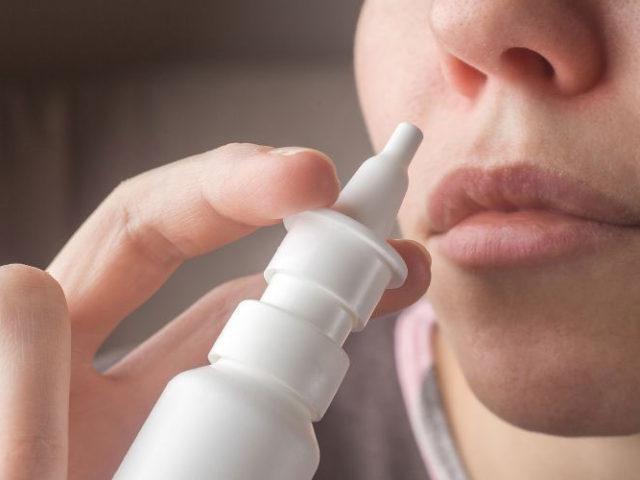COVID-19 Vaccine: Pre Clinical Testing Of Altimmune’s AdCOVID Intranasal Vaccine At University Of Alabama Birmingham Shows Positive Results
Source: COVID-19 Vaccine Jul 13, 2020 4 years, 9 months, 1 week, 6 days, 12 hours, 49 minutes ago
COVID-19 Vaccine: Maryland based Altimmune, Inc., a clinical-stage biopharmaceutical company, has reported positive results from the preclinical studies conducted in mice at the University of Alabama at Birmingham of its intranasal COVID-19 vaccine candidate, AdCOVID.

The research studies; a collaboration between the University of Alabama-Birmingham and Altimmune showed strong serum neutralizing activity and potent mucosal IgA immunity in the respiratory tract. The induction of IgA antibody in the respiratory tract may be necessary to block both infection and transmission of the virus to prevent further spread of COVID-19.
From these findings, AdCOVID is expected to be advanced to a Phase 1 safety and immunogenicity study in Q4 of this year.
The intranasal vaccine AdCOVID is designed to express the receptor binding domain of the SARS-CoV-2 virus spike protein, a key immune target that is essential for the virus to bind to cells and initiate infection.
By simply focusing the immune response to this portion of the viral spike protein, AdCOVID elicited a strong systemic antibody response against the receptor binding domain in mice, achieving serum IgG antibody concentrations greater than 800 micrograms per milliliter just 14 days after administration of a single intranasal dose. In addition, AdCOVID stimulated serum viral neutralization titers of 1:320 by Day 28, two-times higher than the titer recommended by the U.S. Food and Drug Administration for investigational convalescent plasma as a treatment for severe COVID-19.
In another separate study with UAB, a single intranasal dose of AdCOVID stimulated a 29-fold induction of mucosal IgA in bronchoalveolar fluid of vaccinated mice. This level of IgA antibody stimulation is well above that associated with protection from disease in clinical studies of other mucosal vaccines.
Dr Frances Lund, Ph.D., lead UAB investigator for preclinical testing of the AdCOVID vaccine candidates told Thailand Medical News, "The potent stimulation of mucosal IgA immunity in the respiratory tract may be crucial to effectively block infection and transmission of the SARS-CoV-2 virus, given that the nasal cavity is a key point of entry and replication for the SARS-CoV-2 virus."
He added, "Stimulation of immunity at this level just 14 days after a single dose is impressive for any vaccine, and is particularly notable for a potential coronavirus vaccine."
Dr Lund is also the Charles H. McCauley Professor and chair of the UAB Department of Microbiology. The Lund lab did the preclinical testing in collaboration with the labs of Dr Troy Randall, Ph.D., Professor of medicine in the UAB Division of Clinical Immunology and Rheumatology; Dr Kevin Harrod, Ph.D., professor in the UAB Department of Anesthesiology and Perioperative Medicine; and three more UAB Department of Microbiology labs led by Dr Rodney King, Ph.D., assistant professor, Dr Todd Green, Ph.D., associate professor, and Dr John Kearney, Ph.D., professor.
Altimmune also announced that the antibody responses were accompanied by a rapid recruitment of CD8+ T cells, CD4+ T cells, dendritic cells and natural killer cells in the respiratory tract. Increases in both germinal center a
nd memory B cells, as well as T follicular helper cells, all associated in prior vaccine development research with the generation of long-lived antibody responses, were observed in regional lymph nodes and the spleen.
Detailed preclinical data for the antigen-specific T cell response are expected in coming weeks, along with additional immunogenicity readouts.
The collaborative Altimmune–UAB project was announced March 30th, and Dr Lund made that work the highest priority for her group.
"The aim," she said in March, "is to get the data to Altimmune as rapidly as possible, so they will use the information gained from the preclinical study to design their clinical trial in human individuals.
Significantly, intranasal dosing provides AdCOVID with the potential to be administered rapidly and without the need for needles, syringes or trained healthcare personnel. In addition, AdCOVID's expected room temperature stability profile may allow for broad distribution of the vaccine without the need for expensive cold-chain logistics, such as refrigeration or freezing.
For more about
COVID-19 Vaccine research and latest developments, keep on logging to Thailand Medical News
